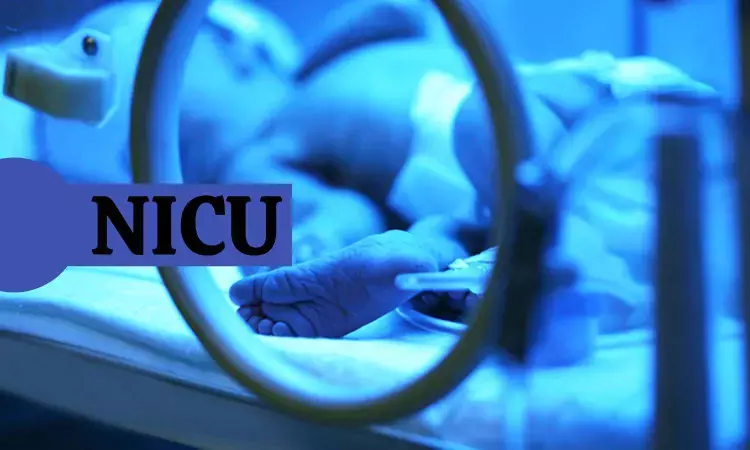- Home
- Medical news & Guidelines
- Anesthesiology
- Cardiology and CTVS
- Critical Care
- Dentistry
- Dermatology
- Diabetes and Endocrinology
- ENT
- Gastroenterology
- Medicine
- Nephrology
- Neurology
- Obstretics-Gynaecology
- Oncology
- Ophthalmology
- Orthopaedics
- Pediatrics-Neonatology
- Psychiatry
- Pulmonology
- Radiology
- Surgery
- Urology
- Laboratory Medicine
- Diet
- Nursing
- Paramedical
- Physiotherapy
- Health news
- Fact Check
- Bone Health Fact Check
- Brain Health Fact Check
- Cancer Related Fact Check
- Child Care Fact Check
- Dental and oral health fact check
- Diabetes and metabolic health fact check
- Diet and Nutrition Fact Check
- Eye and ENT Care Fact Check
- Fitness fact check
- Gut health fact check
- Heart health fact check
- Kidney health fact check
- Medical education fact check
- Men's health fact check
- Respiratory fact check
- Skin and hair care fact check
- Vaccine and Immunization fact check
- Women's health fact check
- AYUSH
- State News
- Andaman and Nicobar Islands
- Andhra Pradesh
- Arunachal Pradesh
- Assam
- Bihar
- Chandigarh
- Chattisgarh
- Dadra and Nagar Haveli
- Daman and Diu
- Delhi
- Goa
- Gujarat
- Haryana
- Himachal Pradesh
- Jammu & Kashmir
- Jharkhand
- Karnataka
- Kerala
- Ladakh
- Lakshadweep
- Madhya Pradesh
- Maharashtra
- Manipur
- Meghalaya
- Mizoram
- Nagaland
- Odisha
- Puducherry
- Punjab
- Rajasthan
- Sikkim
- Tamil Nadu
- Telangana
- Tripura
- Uttar Pradesh
- Uttrakhand
- West Bengal
- Medical Education
- Industry
Probiotics beneficial for newborns with very low birth weight but fail to prevent sepsis, mortality: JAMA

Newborns Bitten by Rats in Intensive Care Unit
USA: A study of 307,000 neonates with very low birth weights showed a slow increase in adopting routine probiotics from 2012 to 2019 in neonatal ICUs, which was linked to lower risk of necrotizing enterocolitis but not mortality rates or sepsis. The findings were published in JAMA Health Forum on May 12, 2023.
The study revealed that from 807 NICUs (neonatal intensive care units) studied, 17% had adopted routine probiotics use by 2019. There was a decline in necrotizing enterocolitis by 18% at adopting NICUs versus nonadopting NICUs, and probiotic adoption was not tied to significant changes in sepsis or mortality.
RCTs (Randomized clinical trials) indicate that probiotic treatment reduces the risk of necrotizing enterocolitis (NEC) for neonates with very low birth weight (VLBW), with smaller decreases in the risk of death and sepsis. There needs to be more evidence on the rate of probiotic adoption in US NICUs and whether the benefits seen in the trial have been brought to practice.
Leila Agha, Harvard Medical School, Boston, Massachusetts, and colleagues aimed to estimate changes in probiotic use in neonates with very low birth weight to fill this knowledge gap. They also tested whether neonates with VLBW treated at NICUs adopting routine probiotic yields better outcomes compared with neonates treated at nonadopting NICUs in a cohort study.
The researchers extracted details from d Vermont Oxford Network data on neonates with very low birth weight in US neonatal ICUs from 2012 to 2019. The patients were allocated to probiotics adoption vs nonadoption. Adopting NICUs was defined as those previously or currently treating at least 20% of neonates with a very low birth weight with probiotics.
A difference-in-differences analysis compared changes in very low birth weight infant outcomes between adopting and nonadopting NICUs before and after hospital-level adoption of probiotics. Rates of NEC, sepsis, and in-hospital mortality were the primary outcomes. Sepsis was defined as a fungal or bacterial infection after day 3 of birth. Additional analyses used the neonates' proportion treated with probiotics in delivery NICU and the year of each neonate.
The study revealed the following findings:
• The analysis comprised 307 905 neonates with VLBW (mean gestational age, 28.4 weeks; 50.0% male) at 807 hospitals in the US.
• There was an increase in the rate of probiotic treatment of neonates with VLBW from 4.1% of neonates in 2012 to 12.6% of neonates in 2019.
• Only 16.5% of NICUs adopted probiotics by 2019, with 76.3% of neonates with VLBW receiving probiotics in 2019 at adopting NICUs.
• There was a decline in the incidence of NEC by 18% at adopting NICUs (odds ratio [OR], 0.82) compared with nonadopting NICUs.
• Probiotic adoption was not associated with significantly reduced sepsis (OR, 1.11) or mortality (OR, 0.93).
The findings for probiotic adoption and NEC, mortality, and sepsis were smaller than predicted by the totality of randomized controlled trial evidence but are in line with a meta-analysis restricted to studies at low bias risk.
"These findings underscore the importance of monitoring the effectiveness of probiotics as they diffuse into neonatal practice beyond the setting of clinical trials," the researchers wrote. "The analysis also suggests a framework that might apply to postapproval effectiveness evaluations for other new clinical treatments, providing insight into how technology impacts patient outcomes as it diffuses into routine clinical practice."
Reference:
Agha L, Staiger D, Brown C, Soll RF, Horbar JD, Edwards EM. Association of Hospital Adoption of Probiotics With Outcomes Among Neonates With Very Low Birth Weight. JAMA Health Forum. 2023;4(5):e230960. doi:10.1001/jamahealthforum.2023.0960
Dr Kamal Kant Kohli-MBBS, DTCD- a chest specialist with more than 30 years of practice and a flair for writing clinical articles, Dr Kamal Kant Kohli joined Medical Dialogues as a Chief Editor of Medical News. Besides writing articles, as an editor, he proofreads and verifies all the medical content published on Medical Dialogues including those coming from journals, studies,medical conferences,guidelines etc. Email: drkohli@medicaldialogues.in. Contact no. 011-43720751


